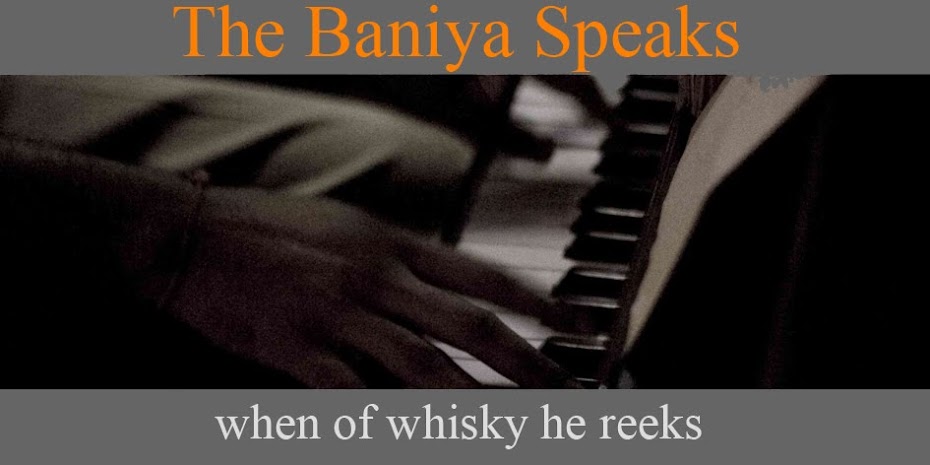People are stupid. And I'm not excluding myself.
Why cant people let go of the things they've been holding onto longer than the things they ask others to let go off, which the latter cling to only because the former are holding onto their things in the first place. HA 41 words in a sentence. An editors nightmare, I'm told. That's a little bomb I've left for my girlfriend, with whom I'm currently pissed, to come across when I finally give her this blog's link. Much like the lingering, un-discernible, strangely floral smell in Delhi's air early winter. Shes a journo and has OCD. Obsessive compulsive disorder. Seriously, I dare you to mispronounce a word in front of her. And I still chase her, I feel like a lost little boy if I don't have the hem of her skirt to hold. Talk about self destructive.
Sigh
This is one time when getting it out of my system didn't help. So I'll cut the post short (edit: that didn't happen once I decided to include some Ruben magic in the post), and maybe finish some of the many I started in the last few weeks, only to abandon, like the majestic notes of Ruben Gonzalez's playing do to your ear, as they fade after making oh so sweet love to your mind. So depress.
Nice guys most definitely finish last, if I can so presumptuous as to call myself that.
Please listen to this. Keep the lights dim and your heart light. Beauty thou hath a sound. Emotive music at its finest.
And this is just about as beautiful as it gets. Even if you don't like the tune, though theres nothing not to like, its the color of the piano tone that overwhelms the senses, imperfect though the reproduction in the old recording is.
Many people think playing a piano is hitting some keys and getting a sound. Little do they realize how the pianist hits those keys, ie the mechanics of his touch, completely change the sound of a piano.
Think of a golfers swing, the mechanics. The level and relaxed positioning of the shoulders, waist, knees, legs, arms, elbows. The flow of the club as you move it back and forth, how you pivot at the waist, thinking about every tiny detail the instructor told you, and you grandly duff the ball. Once, twice, a thousand times. Then, all the conscious thought disappears, all the mechanics become sub conscious, and only the fluidness of your body is in your mind. Thats when you hit the 320 yarder. Thats when you produce that sweet and harmonious sound from your piano, the little inflections in the hand, arm and shoulder become sub conscious, and you suddenly begin to use gravity rather than force the keys. Its a quest. The nuances of which elude even the most seasoned pianists, who care only about speed and virtuosity. True virtuosity implies perfection in every aspect. And I'll get it someday, peacefully, when I've stopped caring how long it'll take. And I keep playing that one note in the middle of the keyboard, patiently, coaxing the sound to come out.
//For pianists: Ive tried many schools of techniques, but I've found the Barbara Lister Sink method and Seymour Fink manual to, together, be simple, complete and fun. The much toted Taubman approach is too painful to ever be able to enjoy playing the instrument after those grueling 20 hours of lectures, but hey, if you want to be a concert pianist, go ahead. I have tried others. But the main key is the simple motion that Lister Sink stresses on. Listen to her sound! But these are only guides, everybody's body is, after all, different//
Thank you *all* (with a grand readership of one at the time of writing this) for tuning in.
Au revoir


